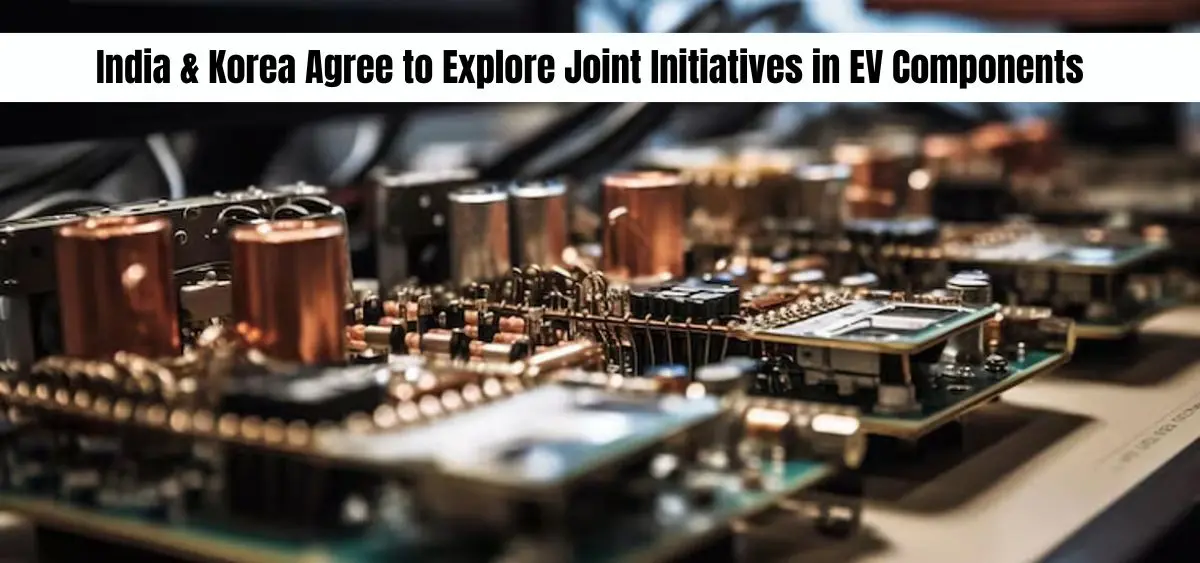In a move set to reshape the future of electric mobility, India & Korea agree to Explore Joint Initiatives in EV components, electronics, and digital supply chains. Announced during the G20 Trade and Investment Ministers’ Meeting in South Africa on October 10, 2025, this collaboration promises cutting-edge technology transfers, co-investment opportunities, and a stronger local EV ecosystem. Could this partnership be the game-changer India’s EV industry has been waiting for?
The talks were led by India’s Minister of State for Commerce and Industry, Jitin Prasada, and his South Korean counterpart, Yeo Han-Koo. During the discussions, both sides identified manufacturing, digital technologies, and clean technologies as priority areas for collaboration. A key focus will be on investigating joint ventures in EV components and digital supply chains, encouraging co-investment and technology transfer in high-growth sectors. This initiative aligns closely with India’s “Make in India” program and aims to strengthen the Comprehensive Economic Partnership Agreement (CEPA) between the two nations.
For India, the collaboration offers multiple benefits. South Korea’s expertise in advanced manufacturing and EV technology—particularly in battery and motor production—can help accelerate the development of a local EV supply chain. This reduces India’s reliance on imports while supporting domestic production efforts by companies like Hyundai and Kia, which are increasingly localizing EV battery manufacturing. Beyond industrial growth, the partnership is expected to enhance economic resilience, secure critical technologies, and generate employment opportunities across the EV and electronics sectors.

South Korea, on the other hand, stands to gain from increased access to India’s rapidly growing EV market, projected to reach 10 million annual sales by 2030. The collaboration also offers South Korea a strategic opportunity to diversify supply chains, reducing dependency on China, while leveraging India’s manufacturing ecosystem and skilled workforce to expand its industrial footprint and potentially serve other regional markets.
This agreement builds on existing collaborations, such as the joint venture between South Korea’s Yongin Electronics and India’s Sterling Tools Limited for EV and electronic components. It also complements Hyundai’s substantial investment in Tamil Nadu, aimed at expanding EV production and introducing new models, as well as ongoing discussions about South Korea’s potential role in India’s semiconductor mission.
With this partnership, both nations are not only advancing their industrial and technological capabilities but are also laying the foundation for a more resilient, sustainable, and interconnected future in EV manufacturing and digital technologies.
Related Articles:-

